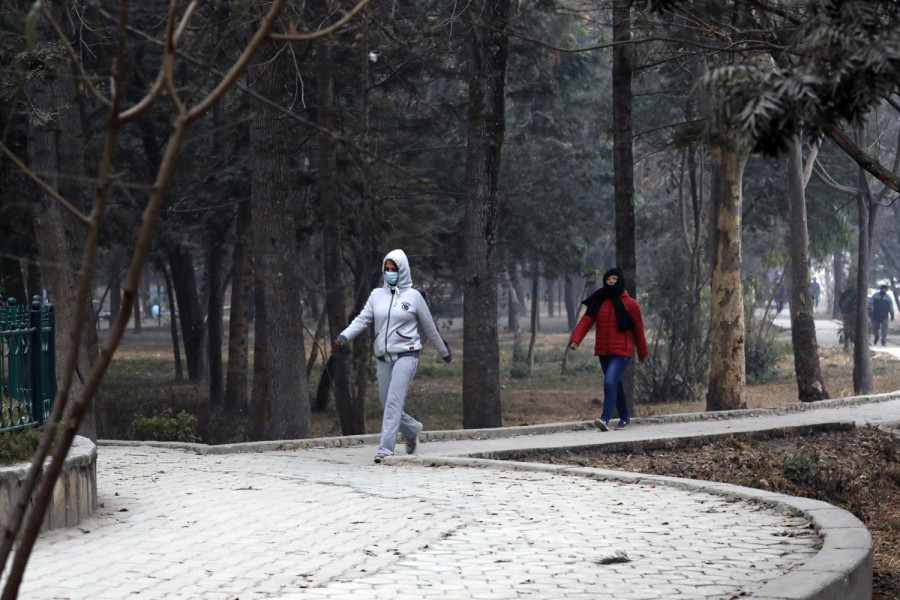Health
As mercury drops, doctors advise avoiding morning runs but stress regular indoor exercise
Freezing temperatures could expose people to more health risks, including heart attack and brain stroke.
Arjun Poudel
With temperatures dipping, Kathmandu experiencing the coldest day on Saturday as the mercury plummeted to 0.6 degrees Celsius and weathermen predicting the condition to continue for a few more days, doctors have advised avoiding morning walks. Freezing temperatures could put people to more health risks, including heart attack and brain stroke, they say.
But, according to doctors, skipping exercise altogether on the pretext of cold weather could be a worse idea.
Dr Om Murti Anil, a senior cardiologist, says people will do fine if they just change their timing of morning walks. “It’s better to go on a regular walk after the sun comes out,” Anil told the Post. “During winter months, it is better to exercise in the day."
A drop in temperatures generally thickens the blood, which increases blood pressure. According to Anil, chilling temperatures also cause blood vessels to narrow.
“As a result, the heart needs to work harder to force the blood through the narrow veins and arteries,” said Anil. “This spikes blood pressure. Uncontrolled blood pressure is a risk factor for heart attack or stroke.”
During winter months, the body also produces several hormones like catecholamines, adrenal and vasopressin to keep the body warm, which increases the viscosity of blood that ultimately raises blood pressure, heartbeat and affects heart, brain and other vital organs, according to doctors.
"Those with high blood pressure, diabetes and heart disease or those with the family history of these conditions are highly vulnerable during the winter months," said Anil. "They are at high risk of brain stroke, heart attack, heart failure and cardiac arrest."
But people should continue their workouts, doctors say, as people tend to eat more during the winter months.
A lack of exercise and eating more could mean weight gain and rise in triglyceride levels.
Elevated triglyceride levels may be a risk factor for atherosclerosis, in which plaque, which is made up of fat, cholesterol, calcium and other substances in the blood, builds up inside arteries.
Dr JP Jaiswal, a senior consultant cardiologist and physician, also suggests a change in walking or jogging time during winter.
"Walk in the day or exercise indoors," said Jaiswal. "If anyone has to go for a walk in the morning, due to their unavoidable daytime obligations, they must properly cover their body parts including the face.”
According to him, several studies have shown the concentration of dust particles suspended in the air is also high during the morning hours.
Other factors that could increase health problems during the winter include consumption of alcohol, smoking and a decline in physical activities.
“People tend to consume more alcohol and smoke more in winter and stop doing their regular workouts due to cold,” said Jaiswal.
Meanwhile, the Epidemiology and Disease Control Division said that small children and the elderly have been affected the most due to a sudden drop in temperatures.
"Health facilities across the country have been reporting a rise in cold-related ailments—common cold, flu, pneumonia, winter diarrhoea and others," said Dr Prakash Shah, an official at the division. "People in the Tarai have been severely affected by the cold wave."
The division has directed concerned health agencies to ensure smooth supply of medicines of cold-related ailments.
Dr Kuldip Pandit, senior consultant physician serving at the provincial hospital in Janakpurdham [then Janakpur Zonal Hospital], said that the number of patients suffering from hypothermia has been on the rise. "Small children and elderly people have been affected the most," Pandit told the Post over the phone from Janakpurdham.




 9.51°C Kathmandu
9.51°C Kathmandu















